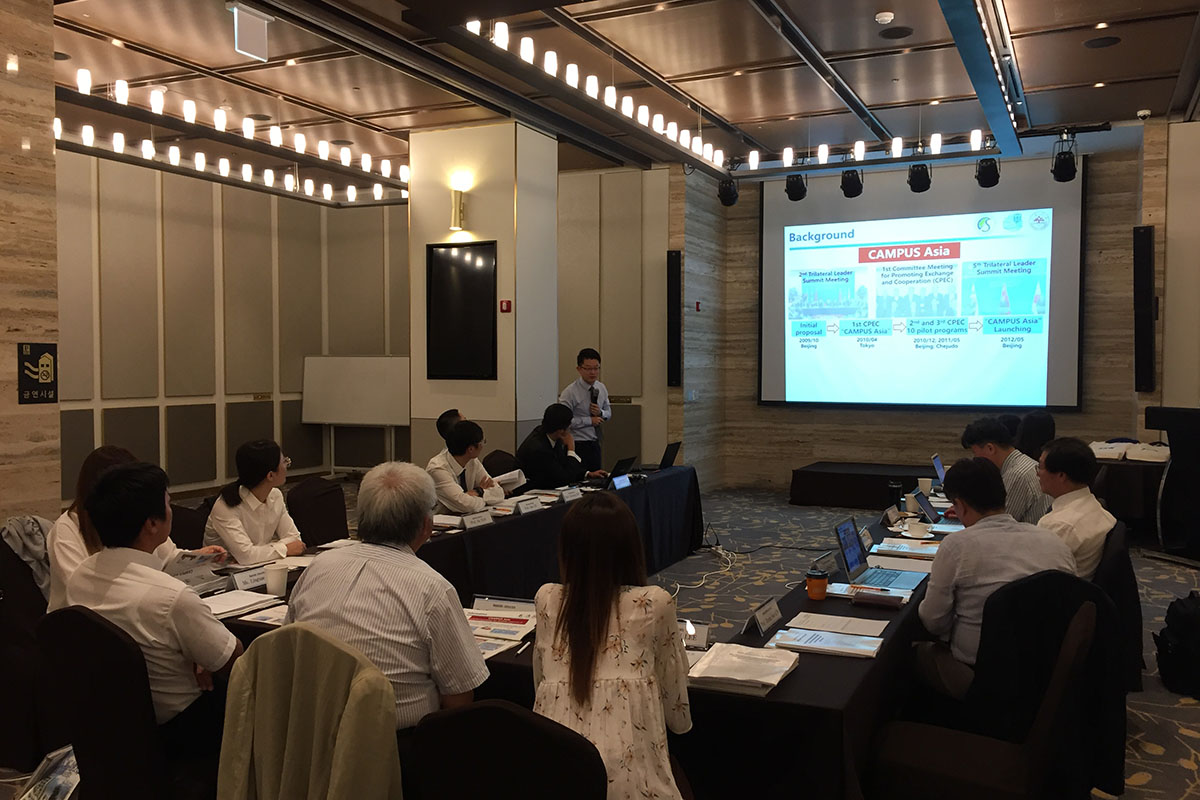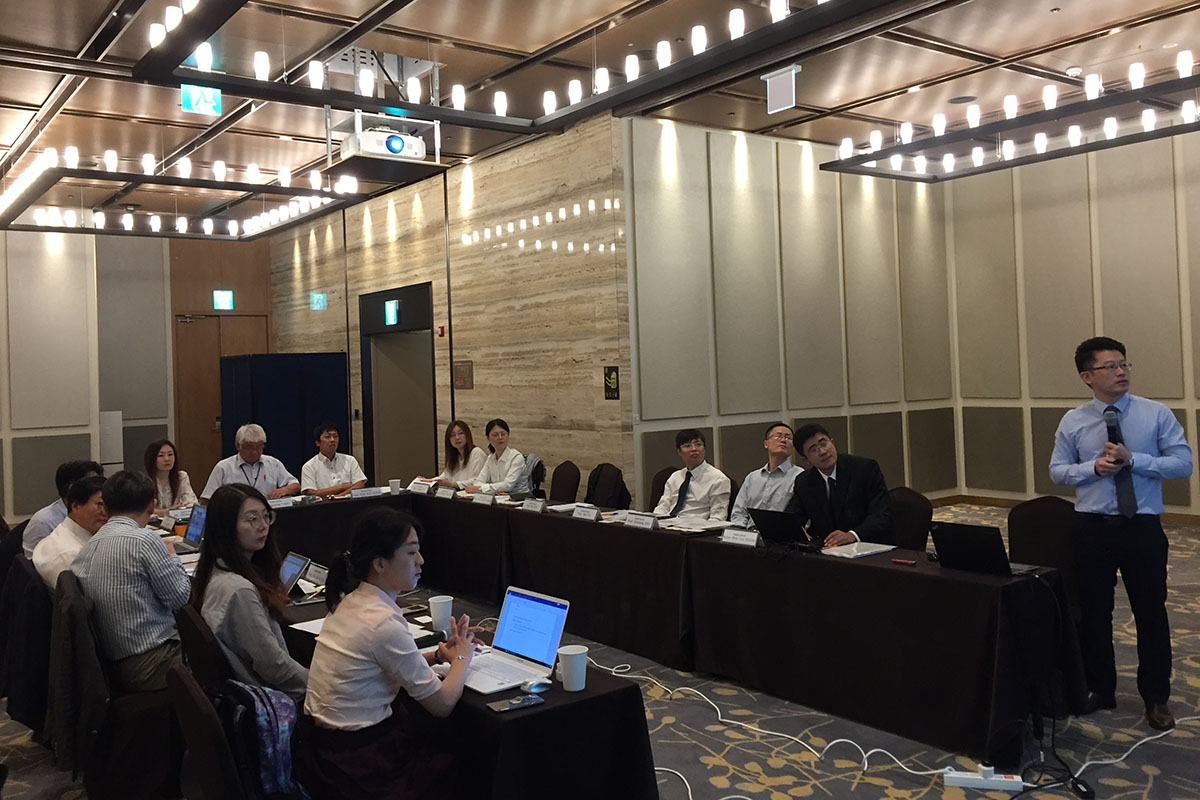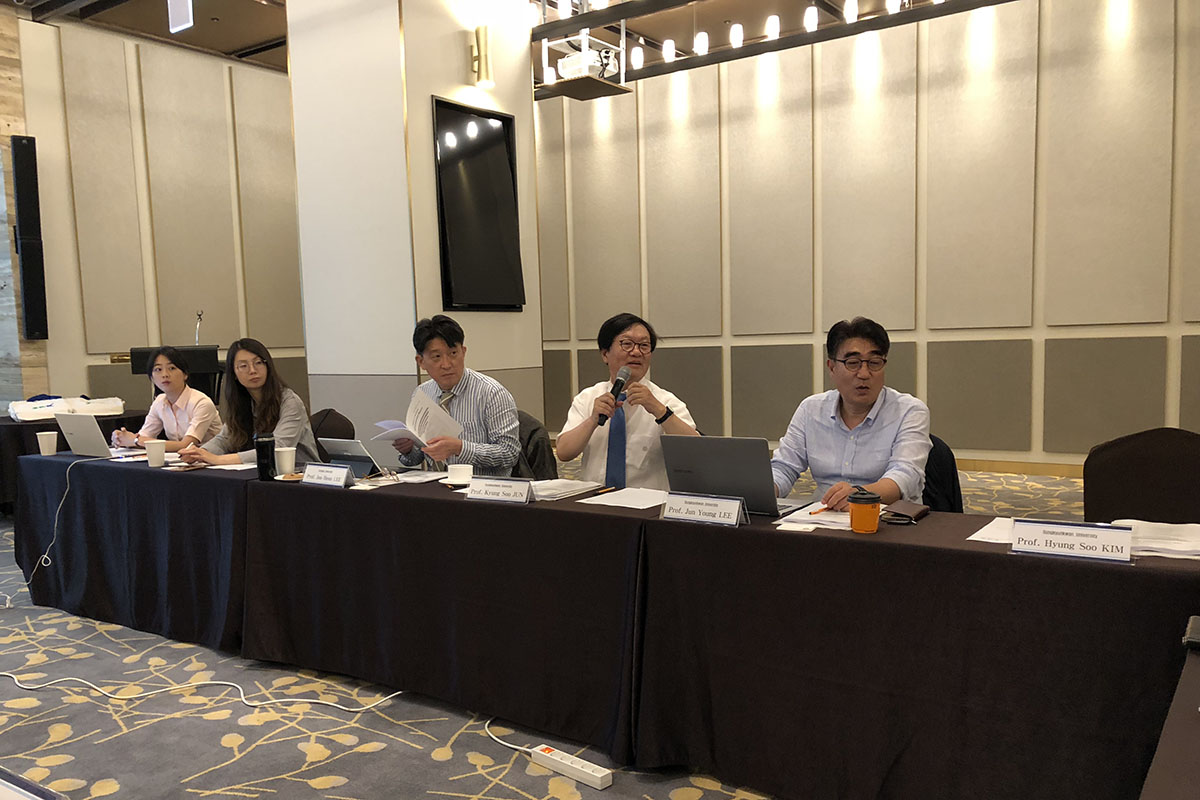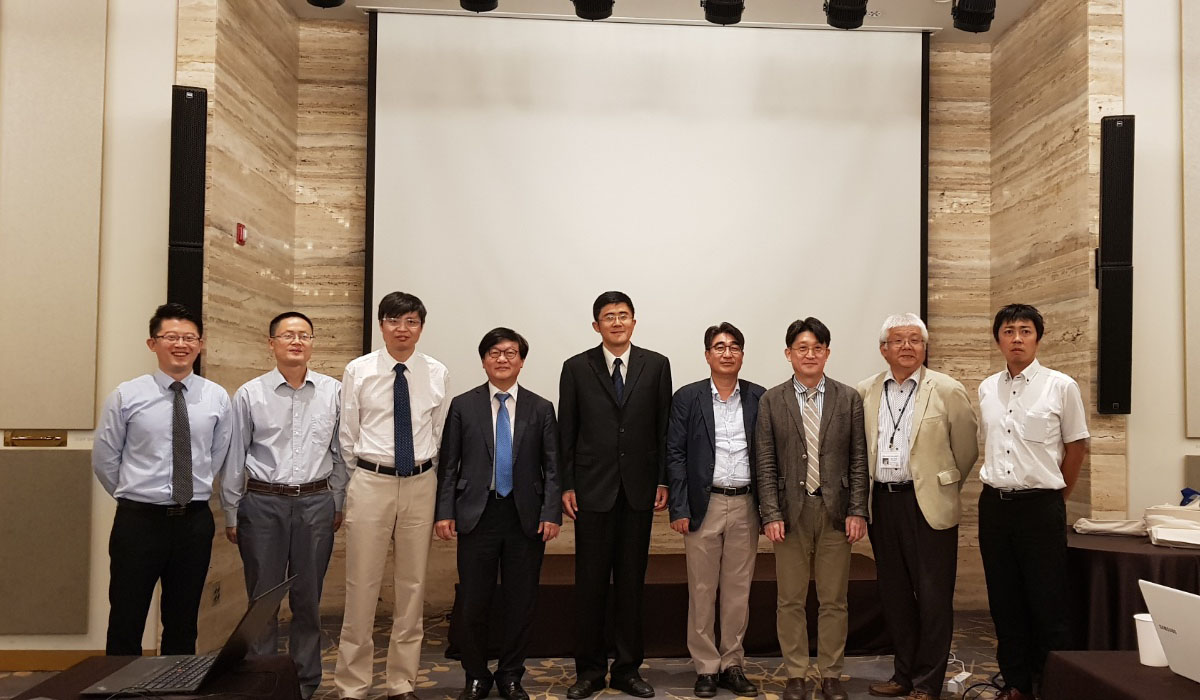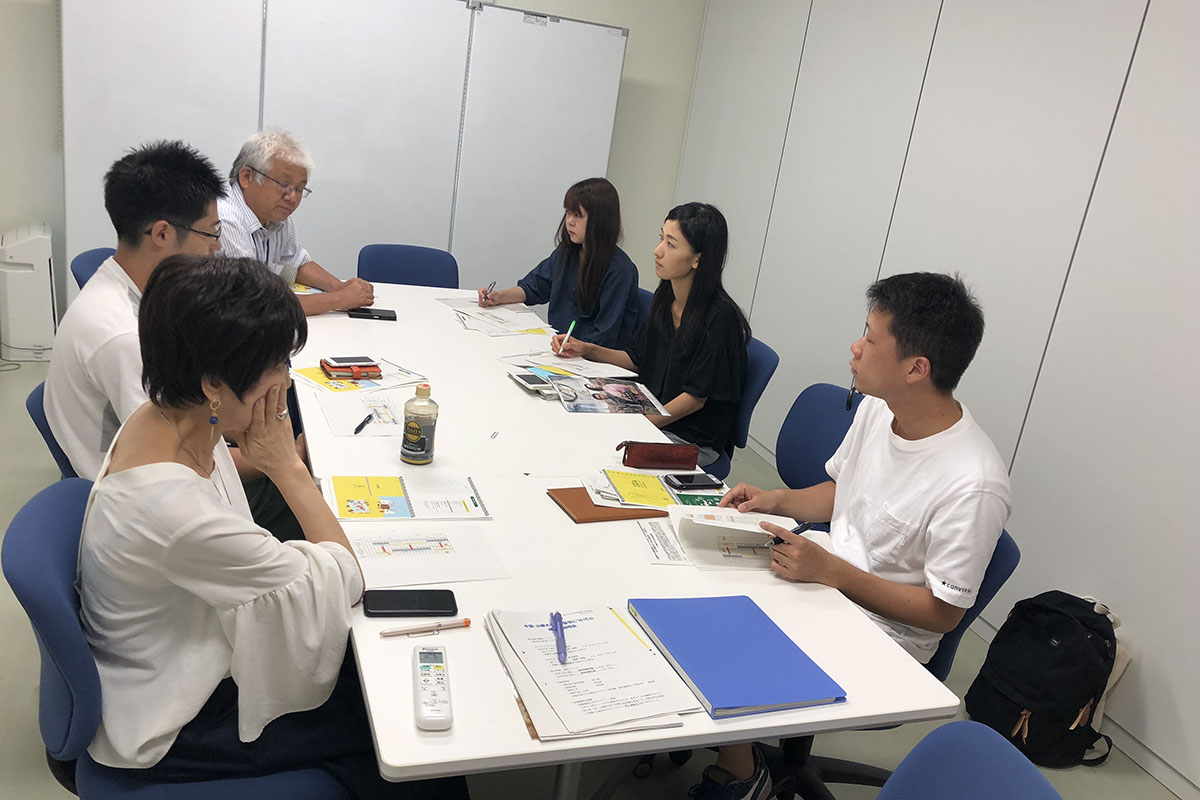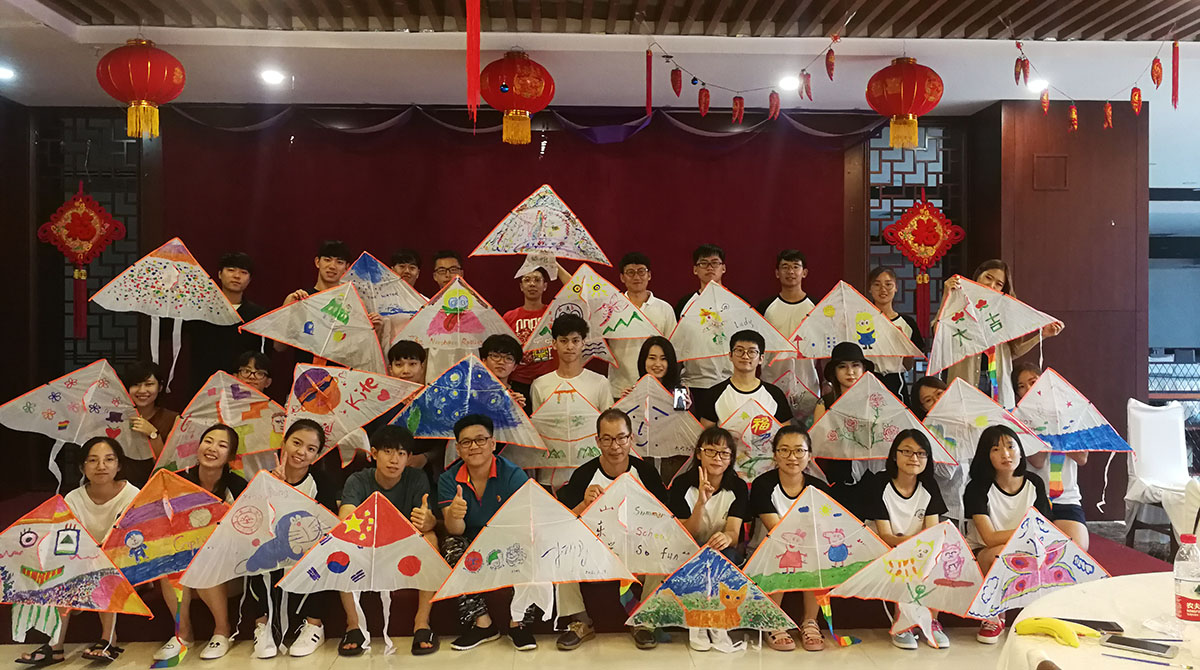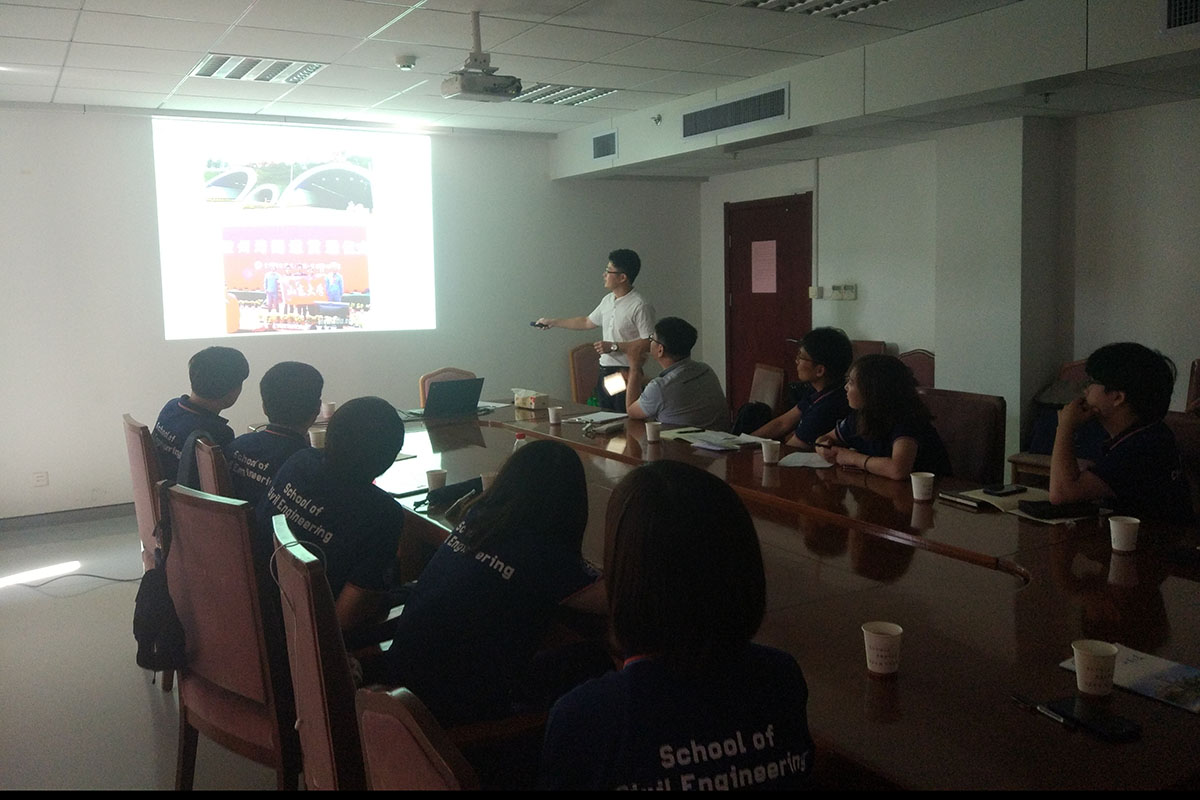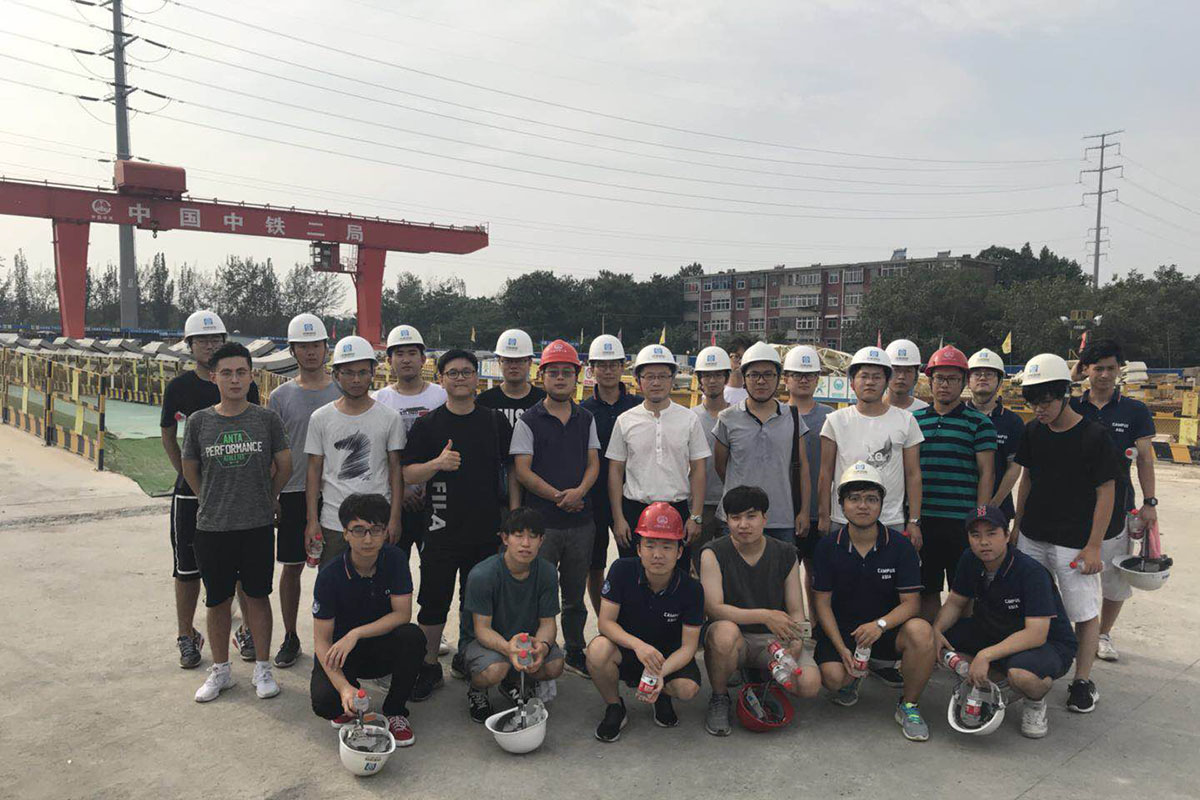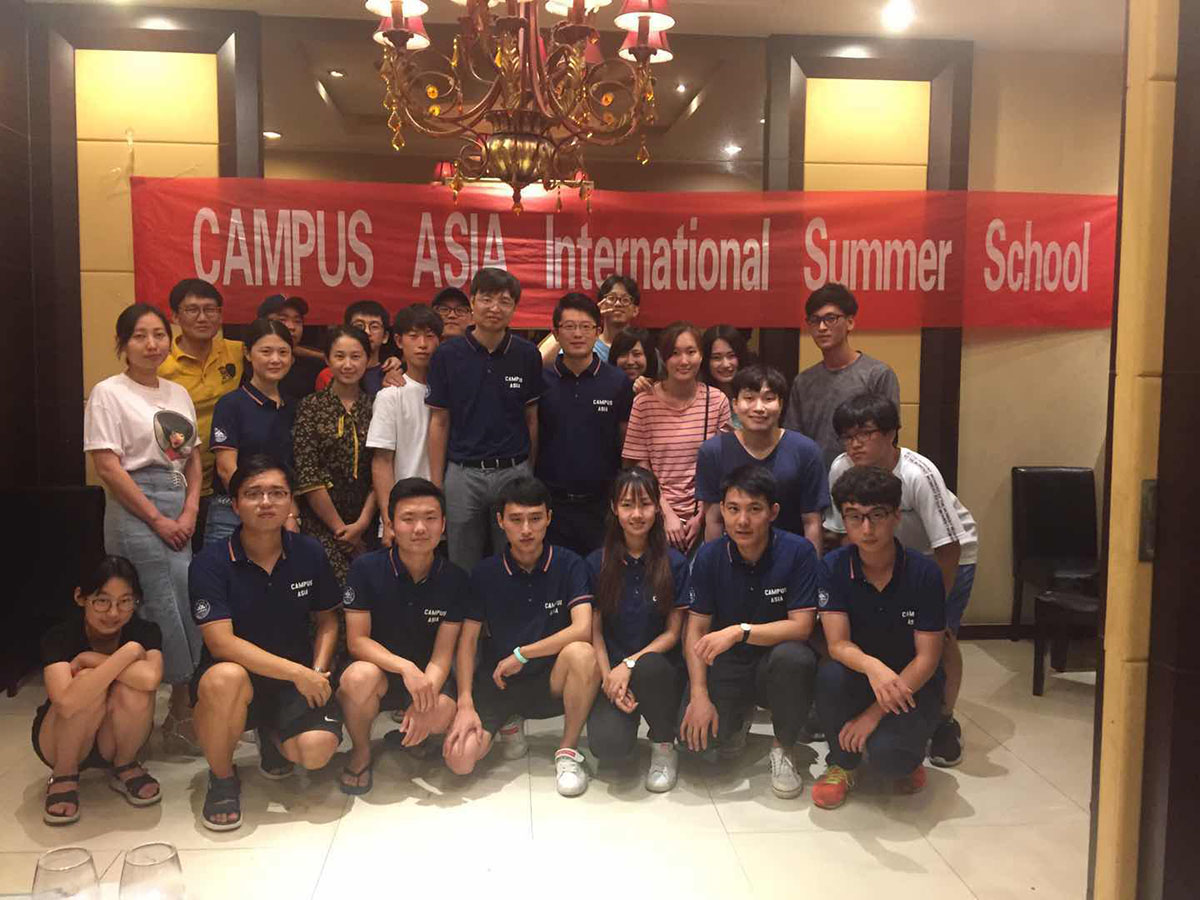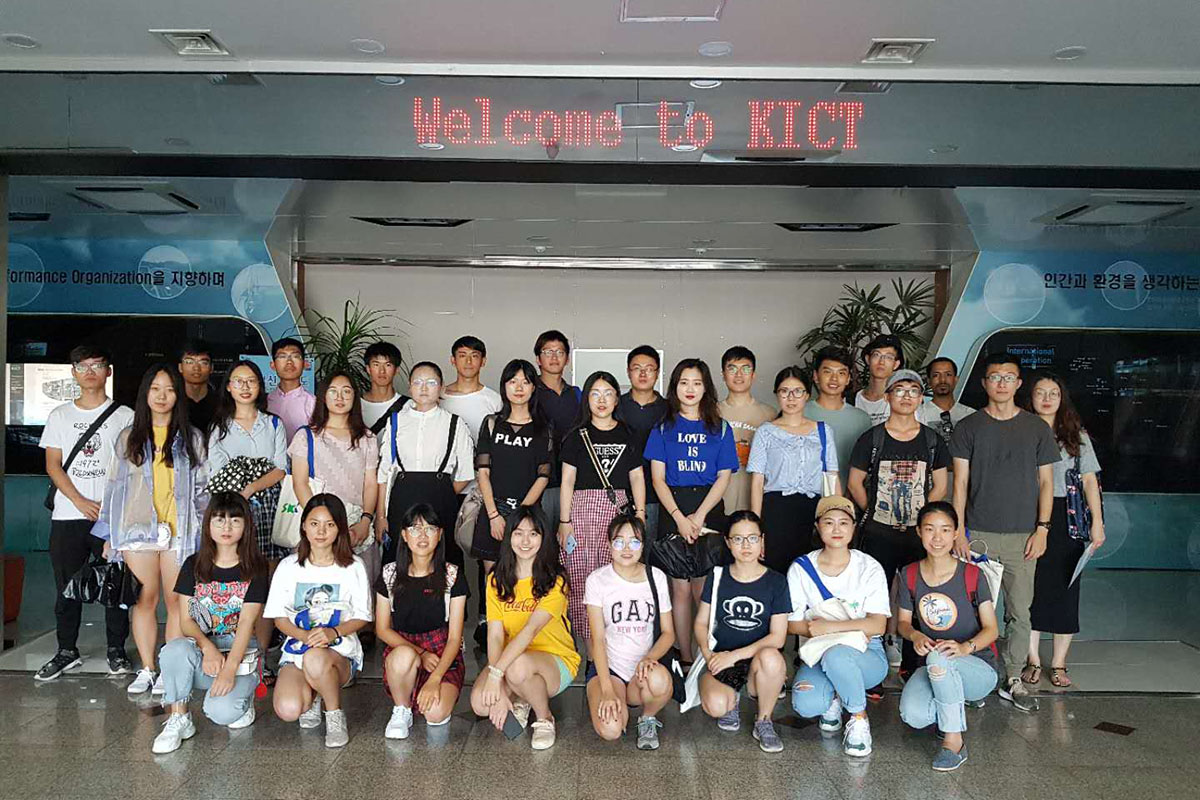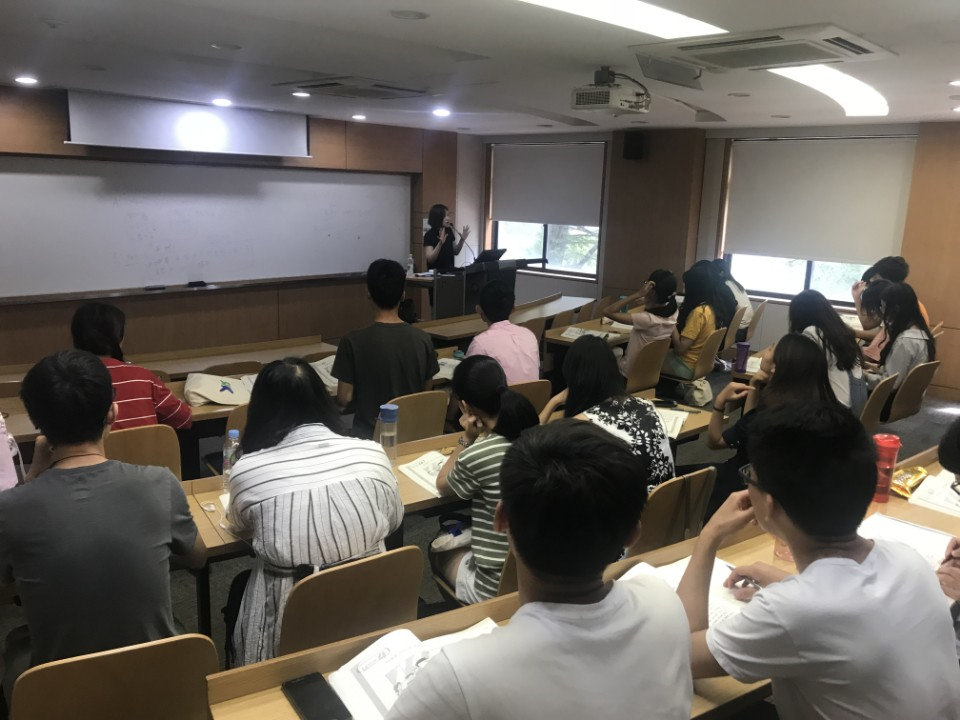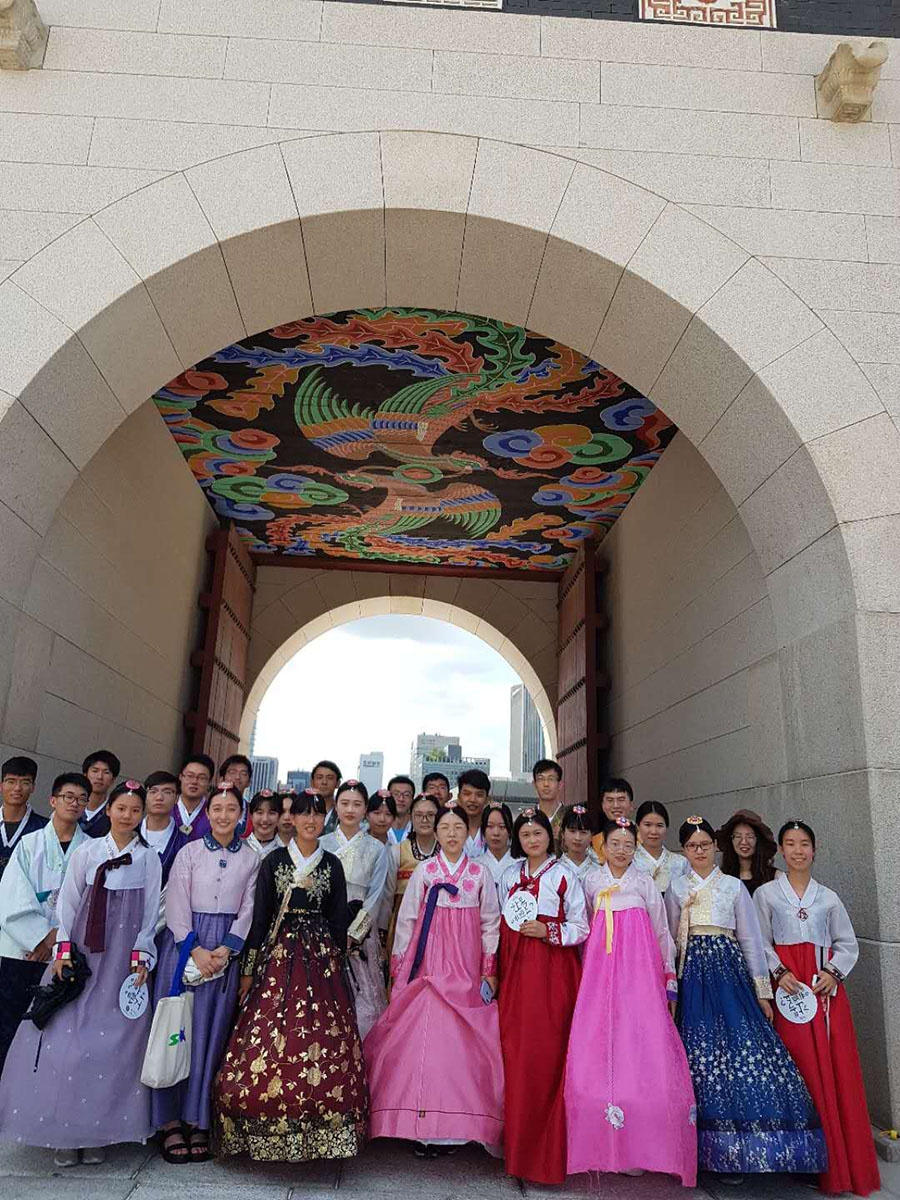The 8th round table meeting for the CAMPUS Asia program in conjunction with joint program review took place in Seoul.
On August 30, 2018, the 8th round table meeting for the CAMPUS Asia program took place in Seoul, Korea. The meeting was joined by four representatives including Prof. Akihide Tada from the Graduate School of Engineering, Nagasaki University. The other representatives of the School of Civil Engineering and the School of Environmental Science and Engineering, Shandong University as well as Prof. Jun Kyungsoo, Dean of the Graduate School of Water Resources and other members from Sungkyunkwan University joined the meeting.
During the meeting, the attendees from the three universities discussed specifically on how to respond to this year’s monitoring+ initiatives and to draft required documentations. In order to ensure the educational quality of the CAMPUS Asia program, a joint program review was also conducted by the three universities in conjunction with the meeting. As external experts, Prof. Lee from the Department of Civil Engineering, Joongbu University, Korea, Prof. Lee from the School of Engineering (chemical engineering), Sungkyunkwan University, Prof. Liu and Assoc. Prof. Chang from the School of Qilu Transportation, Shandong University were invited.
In the joint program review, Prof. Han from Shandong University explained about the background and overview of the program as well as its achievement and challenges. The external experts provided precious feedback to the program for its further development including the need for (a) increasing number of infrastructure-related courses offered in English by each university as well as practical courses and opportunities for site visit; (b) continuous survey on students’ satisfaction; and (C) faculty exchange among the three universities.
During the round-table meeting, it was confirmed that the monitoring+ initiative is a great opportunity not only to improve the educational quality of international collaborative program but also to review the achievement made in cooperation among the three universities over the past few years. Furthermore, a long-term student exchange will start this year based the double degree program. For its educational quality to be ensured, a stronger collaborative system needs to be developed among the three universities. In other words, the three universities confirmed that the “coordination system to provide pre-departure research guidance” should be established as a key element of the double degree program to assist the participating students in writing two master’s thesis. The meeting also covered other topics including the joint “Curriculum for Infrastructure Maintenance Engineering” and internship opportunities for inbound students.